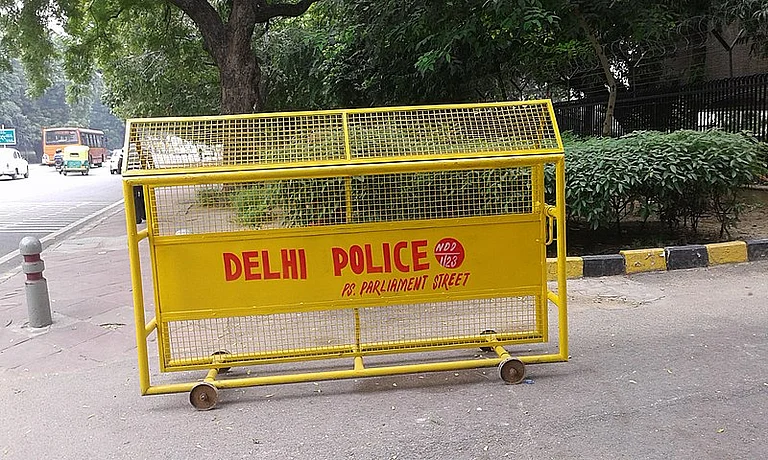The President and Prime Minister of Pakistan received messages of congratulations for the spectacular success achieved by Pakistani scientists. For a while there were jubilations in Pakistan as well. But the celebrations were shortlived. In a small town, barely 100 miles from Karachi, the mullah of a mosque denounced the achievement as satanic. "I've just heard on my transistor radio that some Pakistani, may there be a curse on him, has landed on the moon. May Allah destroy him!"
The mullah's voice was echoed in other mosques throughout the country. The moon was Allah's exclusive domain and trespassing was an unforgivable sin punishable with death. From mosques the movement spread on to the streets. Captain Adam Khan added fuel to the flames by allowing the wife of a foreign diplomat to kiss him on the lips when he came back to earth. The government was unable to fight the Jihad (holy war) launched by the mullahs. Though it arrested thousands of Pakistanis and killed a few hundred, it knuckled under mullah pressure and resigned. Instead of a President or Prime Minister, Pakistan elected an Amir and a Majlis-e-Shoora to advise him. Instead of meeting in Parliament House, the Amir convened the Majlis in the Jamia Masjid. Shairiat laws were introduced with vengeance. Schools and colleges were replaced by madrasas; English, Urdu and regional languages replaced by Arabic; women were ordered to stay in their homes and wear burqas. When they stepped out, men were enjoined to carry weapons like swords, daggers and scimitars used by their forefathers; cinemas and theatres closed; cricket, hockey, soccer, golf, tennis and badminton replaced by riding, tent-pegging, polo, archery, wrestling and weight-lifting. The ordinances went further, allopathy was replaced by Unani; refrigerators and air-conditioners, TVs, telephones, use of electricity declared haram (unlawful); no building was to be built higher than the Jamia Masjid; all men were to have beards; foreigners were ordered to get out of Pakistan. All this within 30 days.
Trouble came from an unexpected quarter. Muslims have many sects with laws and traditions of their own. Their followers clashed with each other. Mullahs were murdered in mosques. The state collapsed into anarchy. Foreign aircraft bombed Karachi and its skyscrapers were reduced to rubble.
A more powerful satire on the dangers of religious fundamentalism I have not read. Its author Ghulam Abbas who died in Karachi in 1982 is hardly known outside the Urdu-reading public. He was born in Amr-itsar in 1909 (one of his short stories deals with the massacre in Jallianwala Bagh in 1919). The family moved to Lahore where Abbas wrote for Urdu magazines and edited the Urdu journal for All India Radio. He was a contemporary of the great short story writers of the post-Prem Chand era which included Saadat Hassan Manto, Krishen Chander and Rajinder Singh Bedi. Ghulam Abbas was perhaps the greatest of them.
Not all the stories in this collection are of the same quality as Hotel Mohenjodaro. But there are a few which should find a place in the best short stories of the world. One such is The Women's Quarter: once again it is about religious-minded puritans who force the municipal authorities to evict prostitutes from the city and give them an alternative settlement six miles beyond municipal limits. The poor women move out into the wilderness and build themselves blocks of flats above shops they hope to rent. Grocers, butchers, bakers and restaurants move in to cater to their needs. Then come mosques, mullahs and madrasas. It soon becomes a more thriving locality than the first and gets a municipality of its own. Once again municipal councillors under pressure from mullahs order the expulsion of the prostitutes. This time they take less chances: instead of six miles, whores are ordered to live 12 miles beyond the new township.
The strength of Abbas' stories lies in the fact that he draws them from life: his characters were living people; none born of his imagination. And he writes about common people: peasants, lowly-paid clerks, domestic servants and beggars. And his stories are really short.
Abbas has been fortunate in getting Kha-lid Hasan as his translator. Hasan is as at home with his Urdu as he is with English in which he has written many books. He's currently living in Washington representing The Nation of Lahore. I am inclined to agree with his assessment that "Ghulam Abbas by any measure would rank as one of the greatest writers of the short story in any language".























